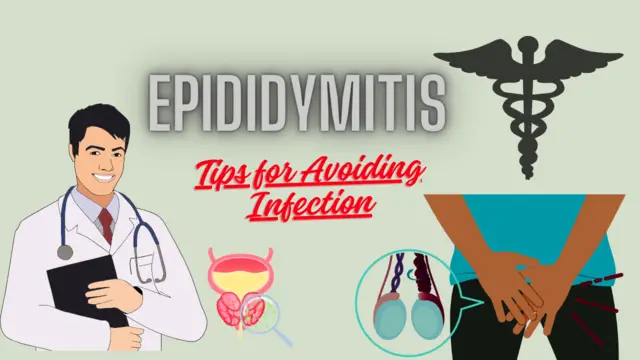Epididymitis, an inflammatory condition affecting the epididymis—a coiled tube behind the testicle—is a significant concern, particularly among sexually active males. This article delves into essential aspects of epididymitis, including its causes, symptoms, risk factors, and treatment options.
Causes of Epididymitis
- Bacterial Infections: Primary among the causes of epididymitis are bacterial infections, notably gonorrhea, and chlamydia, commonly transmitted through sexual contact.
- Other Infections: Bacteria from urinary tract or prostate infections can spread to the epididymis, along with viral infections like mumps virus, occasionally triggering epididymitis.
- Urine Backflow: Sometimes, urine flows backward into the epididymis, causing chemical irritation, potentially aggravated by heavy lifting or straining.
- Groin Injury: Trauma to the groin area can also lead to epididymitis.
- Tuberculosis: Although rare, tuberculosis infection can cause epididymitis.
Symptoms of Epididymitis:
- Swollen, discolored, or warm scrotum
- Testicle pain and tenderness (typically on one side)
- Pain during urination
- Frequent or urgent need to urinate
- Discharge from the penis
- Lower abdominal or pelvic discomfort
- Blood in the semen
Chronic Epididymitis:
When epididymitis persists for over six weeks or recurs, it is considered chronic, and its cause may not always be identifiable.
When to Seek Medical Attention:
- Scrotal pain or swelling should not be ignored, as some conditions require immediate treatment to prevent permanent damage.
- Severe scrotal pain warrants emergency care.
- Discharge from the penis or painful urination necessitates a visit to a healthcare provider.
Treatment Options:
- Antibiotics: Typically, antibiotics like Ceftriaxone, Doxycycline, and Azithromycin are prescribed to treat epididymitis.
- Anti-Inflammatory Drugs: Medications such as Ibuprofen and Ketotifen help alleviate discomfort.
- Epididymectomy: In rare cases, surgical removal of the inflamed epididymal section may be necessary.
Prevention Measures:
- Practice safe sex by using latex condoms.
- Stay hydrated and avoid caffeine-containing beverages.
- Seek medical attention promptly if symptoms arise.
Timely intervention is crucial for managing epididymitis effectively. Understanding its causes, recognizing symptoms, and promptly seeking medical care can significantly improve outcomes and prevent complications.



I’m pretty pleased to uncover this site. I need to to thank you for ones time just for this fantastic read!!
I definitely loved every little bit of it and I have you book-marked
to see new stuff on your blog.
I’m delighted to hear that you enjoyed the site and found the content engaging!
Your feedback is greatly appreciated, and I’m thrilled that you’ve bookmarked the page for future updates. Thank you for your kind words!